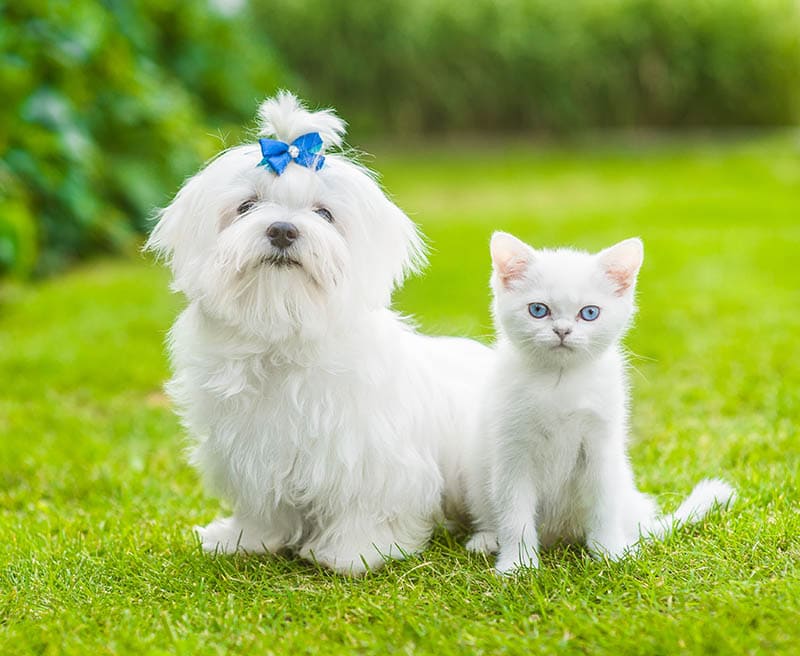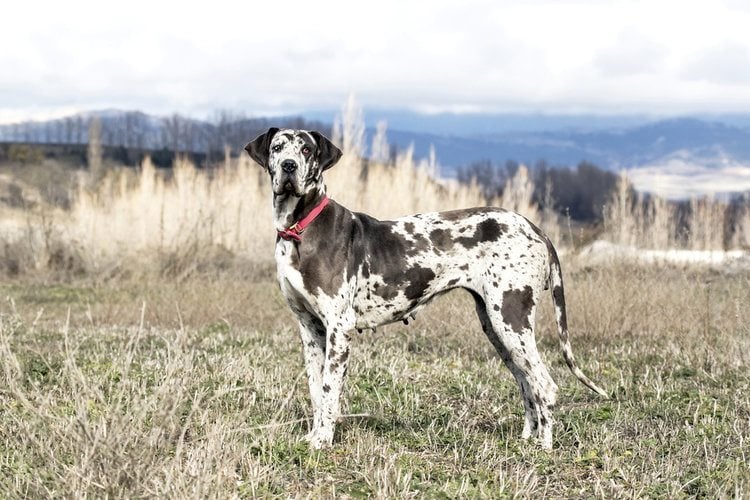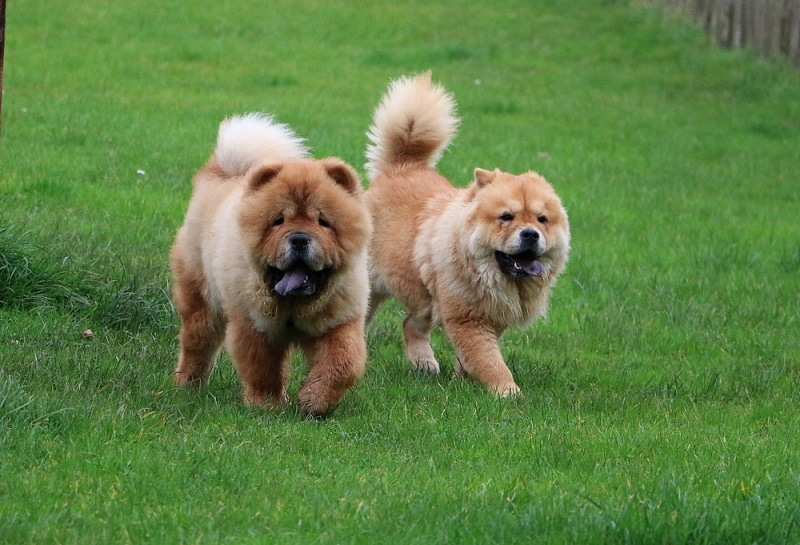Are Maltese Good With Cats? How to Help Them Get Along
By Beth Crane
Updated on

With its silken fur and cute face, the Maltese seems like it’d be a treasure and behave sweetly towards everyone it meets. However, dogs famously butt heads with cats. What about the adorable Maltese? Maltese dogs are known to be affectionate and easy-going with cats if they’re socialized well. However, each is different, and you should never assume your Maltese will love every cat it sees.
Maltese dogs, as a breed, are not aggressive. They are known for being very friendly and have a low prey drive, and they likely won’t want to chase cats as much as some other breeds. They’re companion dogs bred for a loving personality.
Another indication that a Maltese is likely to be good with cats is their size. Maltese are small dogs, only reaching 10 inches tall and weighing 9 pounds at most! This is often the same size as most cats, although some cats may be bigger (such as Ragdolls and Maine Coons). A smaller dog is less intimidating to a cat than a big one, but be aware that big cats may end up bullying small dogs!
What Are Maltese Dogs Like?

The Maltese is a very old breed originating in Malta (although some sources state they came from the Manila Islands), which was bred to be a diminutive, loving companion dog. Lapdogs are generally very attached to their owners, but some can be anxious or stand-offish to other pets. The Maltese is a charming, intelligent, playful dog, which is a good mix when introduced them to a cat.
Because they are smart, Maltese are good candidates for training to be gentle and calm around cats. An essential part of introducing Maltese (or any dog) to cats is keeping the dog calm and allowing the cat to approach at their own pace.
Maltese are highly adaptive, so introducing a cat to a resident Maltese shouldn’t phase them. However, they are known to be vigilant and may bark; training them in bark control is important when cats live in the home, as many cats get stressed by sudden loud noises.
How Can You Tell If Your Maltese Is Getting Along With Your Cat?

While some might think it’s easy to tell if a dog is getting along with a cat, it can be not easy in some situations! Some cats and dogs will be friendly towards each other, kissing each other and sleeping together.1 Some will fight at every chance they get, prompting immediate separation. However, there is an in-between stage that is much more subtle.
Your Maltese and your cat may end up only tolerating each other. Cats and dogs can live in the same home and may not show hostility towards each other, but they can both be living with lots of stress.
Some cats and dogs will tolerate each other without issues and learn to live together in relative harmony by avoiding each other when possible. However, some cats and dogs will be very stressed living in the same home.2
- Sleeping together
- Playing
- Eating comfortably beside each other
- Greeting each other
There are many other cute moments your cat and Maltese can have together, but it’s important to note that situations can change, and stress, illness, or pain can mean your cat and Maltese go from love to loathing.
On the other side of the spectrum, there are some behaviors you can look out for from your Maltese and your cat that signify that all is not well:
- Snarling or snapping
- Chasing (both cat and dog)
- Resource guarding
- Not allowing either to get close to their owner
How Can I Help My Maltese Get Along With My Cat?
The best way to help your Maltese get along with your cat is by socializing them properly when they’re young. Puppies and kittens should be socialized well to ensure they’re used to many different experiences, ideally around other animals, people, and situations.
If your Maltese is used to cats (and if your cats are used to dogs), introducing them if you’re thinking of widening your family should be easier.
The key to introductions is to do it slowly and steadily. While the Maltese is unlikely to chase a cat, you can never be 100% certain they’ll get along. Allowing both some space and time to get accustomed to each other is the most crucial part of introductions and can help your Maltese become firm friends with your cat.

What Should I Do if My Maltese and Cat Don’t Get Along?
Unfortunately, you may find yourself in a situation where your Maltese and cat aren’t getting along. Some Maltese may not have been socialized with cats as puppies or have had a bad prior experience with one.
Your vet can talk to you about finding a behavior expert to help you re-introduce your Maltese and cat, hopefully resulting in a calmer and more comfortable home. However, if you’re out of options, it might be time to rehome your Maltese or cat.
Final Thoughts
The Maltese is known as a sweet dog that lives for its owner. They aren’t known to be aggressive, and most get along with cats! However, you can never be certain how a dog will behave around cats, so introducing your Maltese and your cat slowly while staying in complete control of the situation is key for everyone’s safety. If your Maltese causes trouble with your cat, speaking to a behavior specialist may help. Otherwise, the unfortunate option of rehoming one of them is a last resort.
Featured Image Credit: Ermolaev Alexander, Shutterstock












